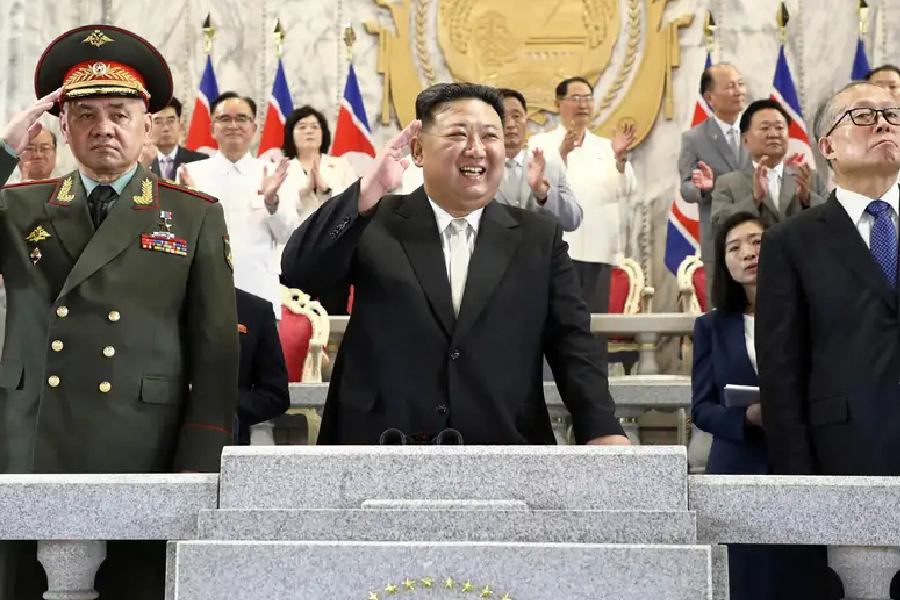North Korea held a late-night military parade in Pyongyang on the 70th anniversary of the end of the Korean War on Thursday night, its state news agency KCNA reported early on Friday.
July 27 is known as "Victory Day" in North Korea.
Nuclear-capable missiles and new attack drones were among the weapons on display, according to state media.
"Strategic unmanned reconnaissance aircraft and multi-purpose attack drones newly developed and produced... flew in demonstrations while circling in the sky over (Kim Il Sung) square, doubling the joy of the people celebrating," KCNA said.
North Korea unveiled new drones earlier in the week at an event attended by visiting Russian Defense Minister Sergei Shoigu, who was shown in KCNA images flanking Kim along with Chinese Communist Party official Li Hongzhong on a balcony overlooking the parade in Kim Il Sung square.
Although the KCNA material is not verifiable, a parade was anticipated given the 70th anniversary and researchers monitoring the patchy satellite data available said there were indications of a large gathering on Thursday evening at the site.
Russia and China survey ICBM they once forbade
Shoigu and Li are the first high-ranking foreign visitors to the reclusive dictatorship since the outbreak of COVID-19, when North Korea shut down almost all cross-border movement.
Their visit also coincides with heightened tensions for both countries with Western powers, particularly in Russia's case amid the invasion of Ukraine.
North Korea was forbidden by UN sanctions — supported by Russia and China at the time — from developing its Hwasong-18 intercontinental ballistic missiles, whose appearance KCNA claimed "heightened the joy" of those attending the parade on Thursday night. The missiles, thought to have the capacity to strike anywhere in the US, were first tested this year.
While in the past Moscow and Beijing had distanced themselves from North Korea's sanctions-defying military activities, both governments sent senior officials to survey the equipment together this week.
KCNA also reported that Shoigu and Kim shared a luncheon earlier on Thursday, in which Kim vowed solidarity with the Russian people and its military.
Korean War ended in armistice only
Hostilities ceased in the 1950-53 Korean War — between the Soviet- and Chinese-supported North and the US-supported South — with the signing of an armistice on July 27, 1953.
No full peace deal was ever brokered between Pyongyang and Seoul after the first major conflict of the Cold War era, but the fragile cease-fire has held with only a few exceptions since.











